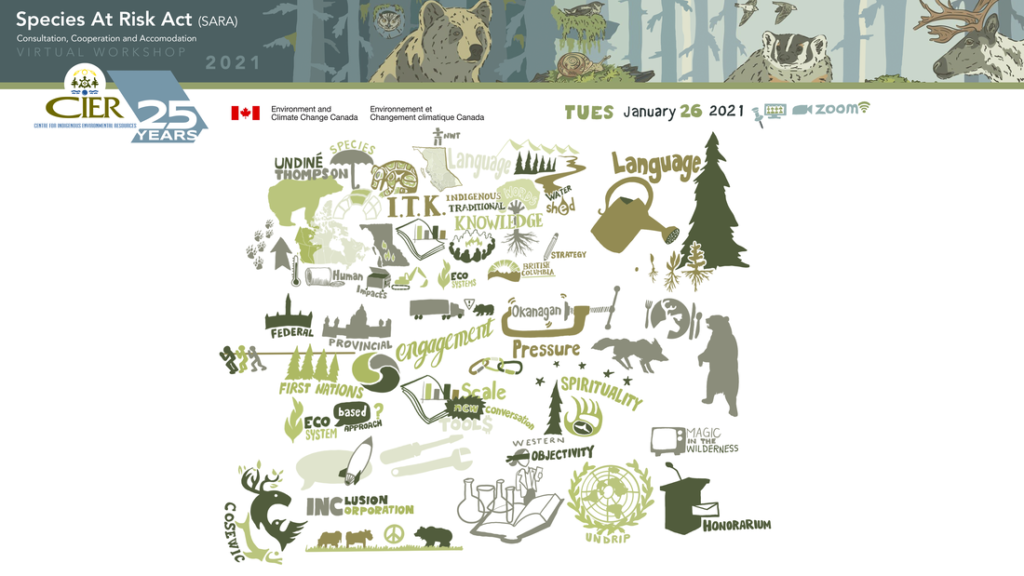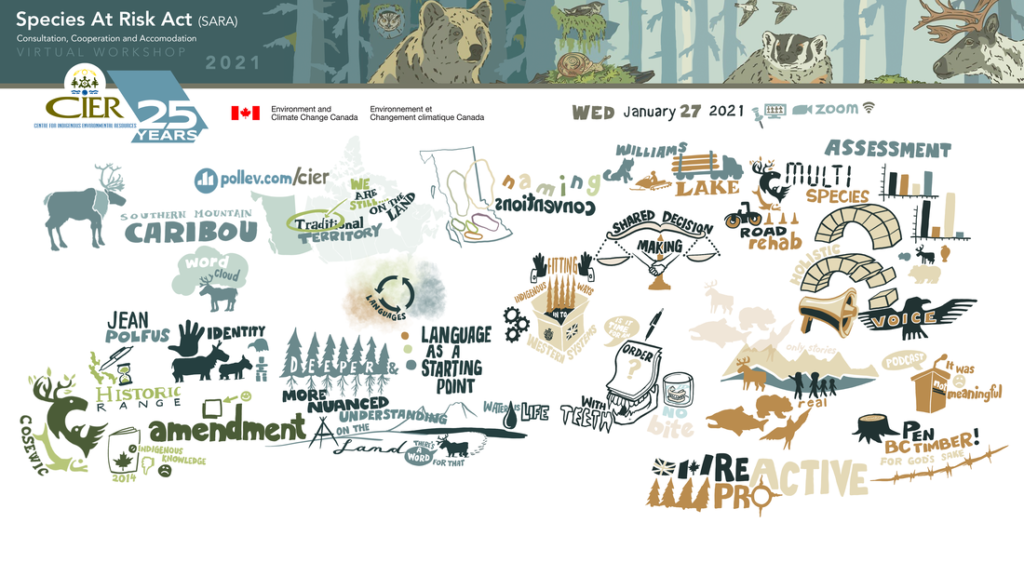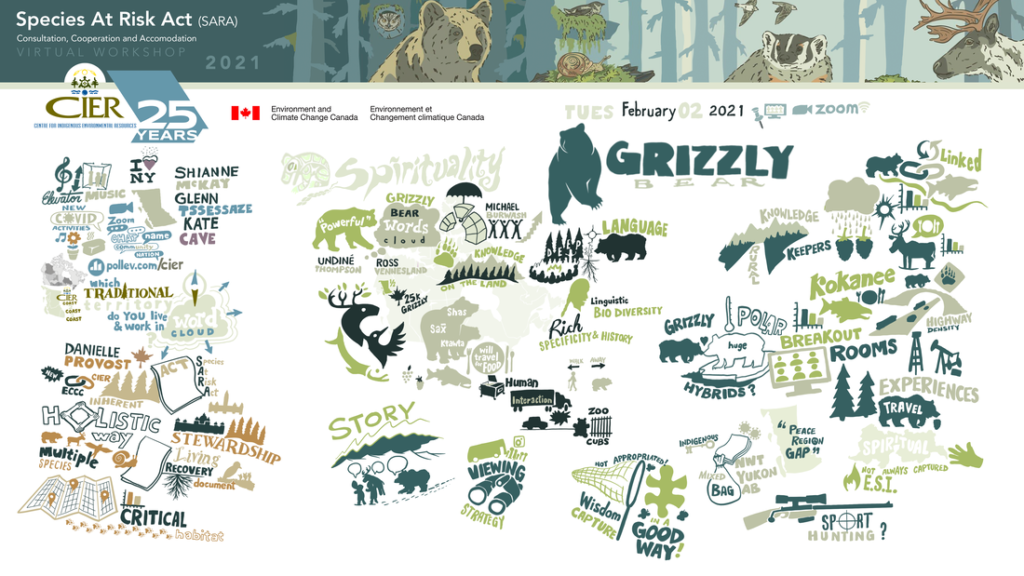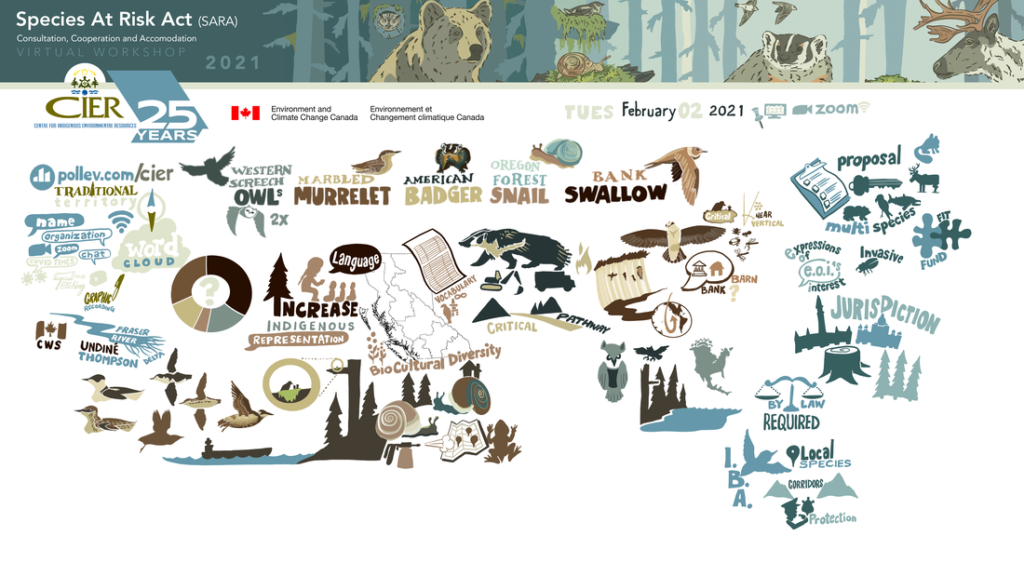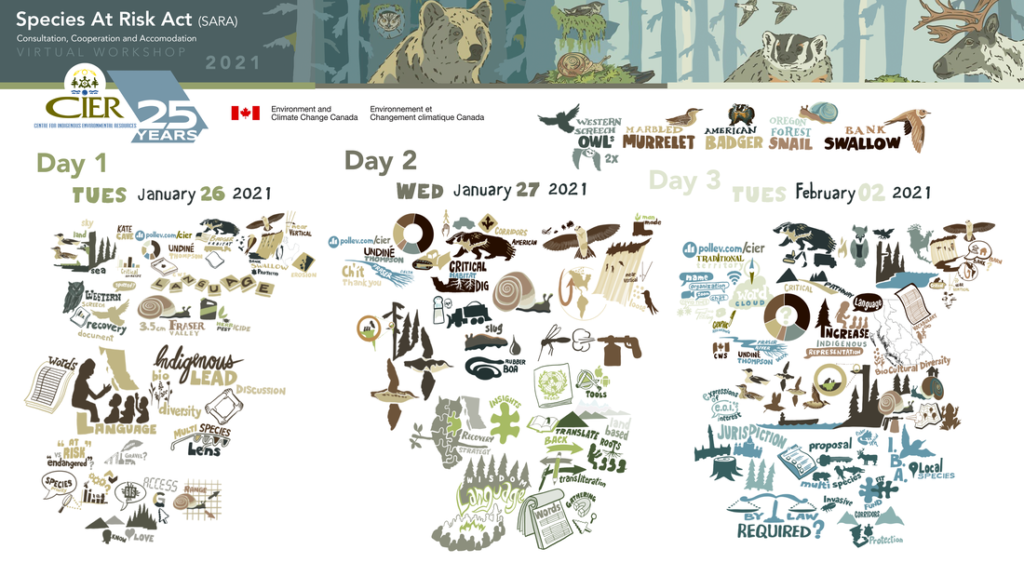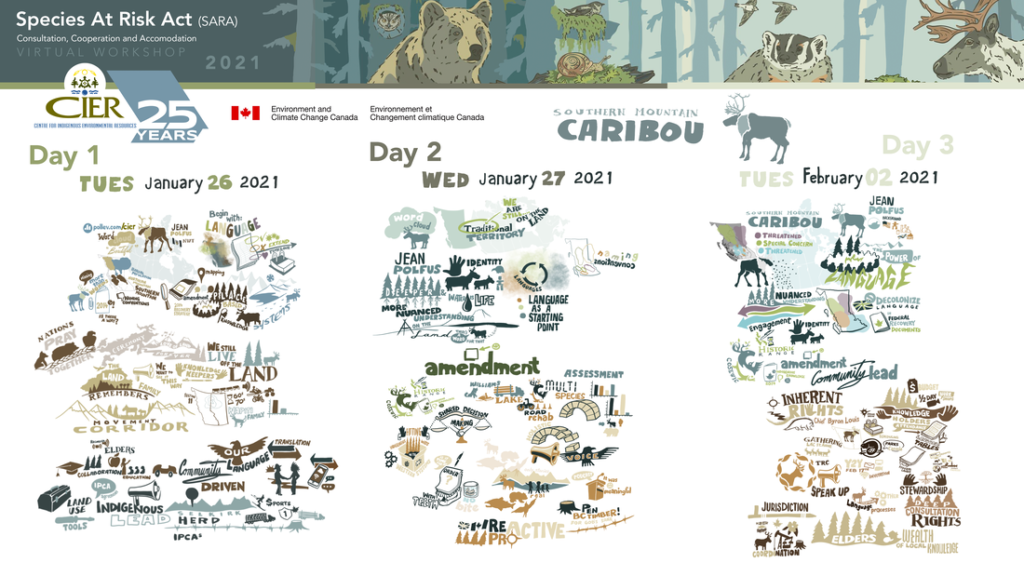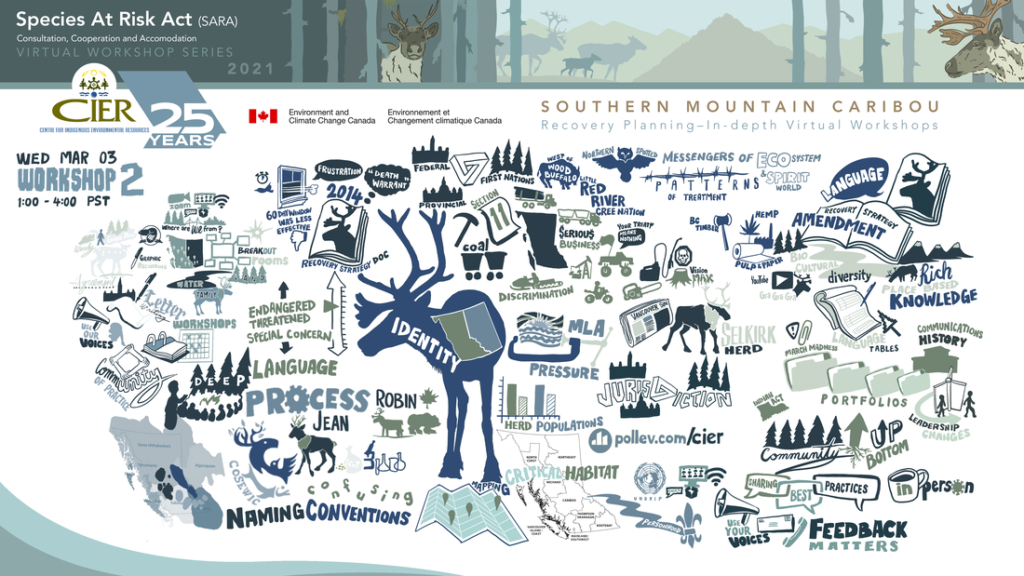Species at Risk Act (SARA) Consultation, Cooperation and Accommodation Project in British Columbia
The Centre for Indigenous Environmental Resources (CIER) partnered with Environment and Climate Change Canada (ECCC) on a Species At Risk Act (SARA) Consultation, Cooperation, and Accommodation Project in British Columbia. This page includes resources that supported this pilot project (e.g. workshop recordings, reports, other materials, key links).
Project Overview
This project facilitated Indigenous communities’ and organizations’ participation in federal recovery planning for seven terrestrial Species at Risk: Grizzly Bear, Southern Mountain Caribou, Bank Swallow, Western Screech-Owl, Oregon Forestsnail, American Badger, and Marbled Murrelet. CIER supported Indigenous communities and organizations and ECCC in their collaborative work including: recovery document development, knowledge and language sharing, and land use planning for species at risk on reserve lands.
Key Project Components
- Consultation and Cooperation workshops
- Modest capacity funding
- Project evaluation report: outcomes, successes, challenges, needs assessment and recommendations for project extension
*Please see Resources section below for workshop materials.
Resources
The following are project related materials and other SARA resources. The images were developed by a graphic recorder. They illustrate what was heard during the presentation and discussion periods. If you have any concerns, comments or questions please don’t hesitate to contact us (see contact information below).
Overview Workshops
Southern Mountain Caribou Workshops
Training Sessions
Other SARA Resources
Contact
Kate Cave
Senior Project Manager, Centre for Indigenous Environmental Resources
[email protected] / T: (204) 956-0660 ext. 3
Shianne McKay
Senior Project Manager, Centre for Indigenous Environmental Resources
[email protected] / T: (204) 956-0660 ext. 9
Danielle Prevost
Canadian Wildlife Service / Environment and Climate Change Canada / Government of Canada
[email protected] / T: (236) 334-1922
